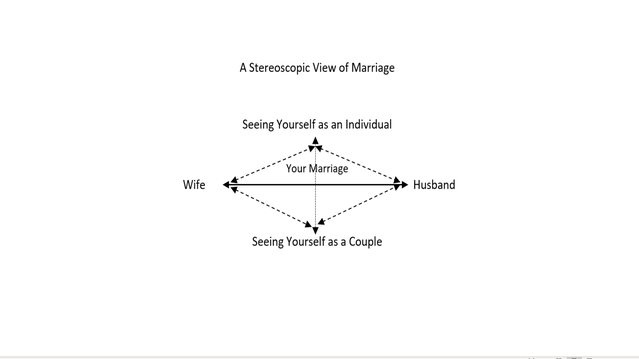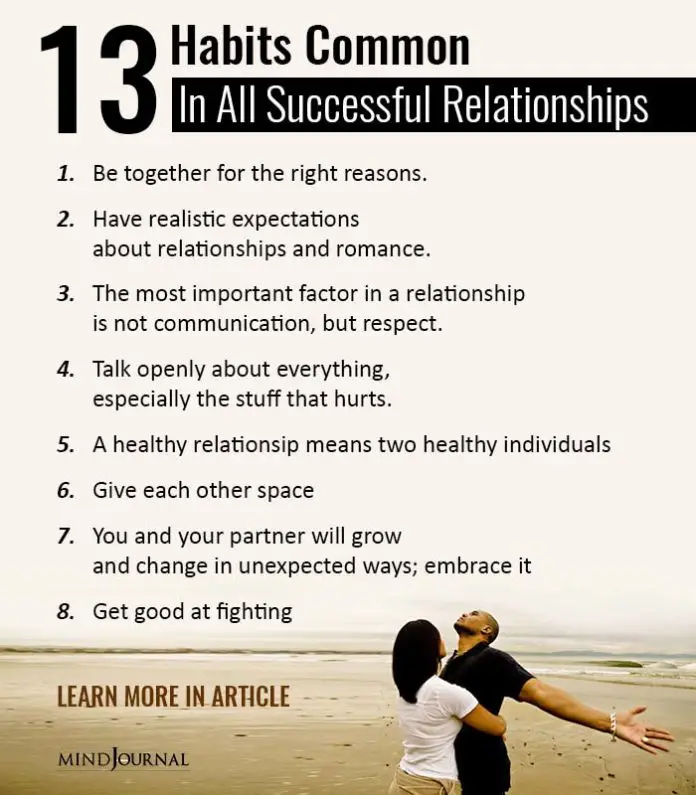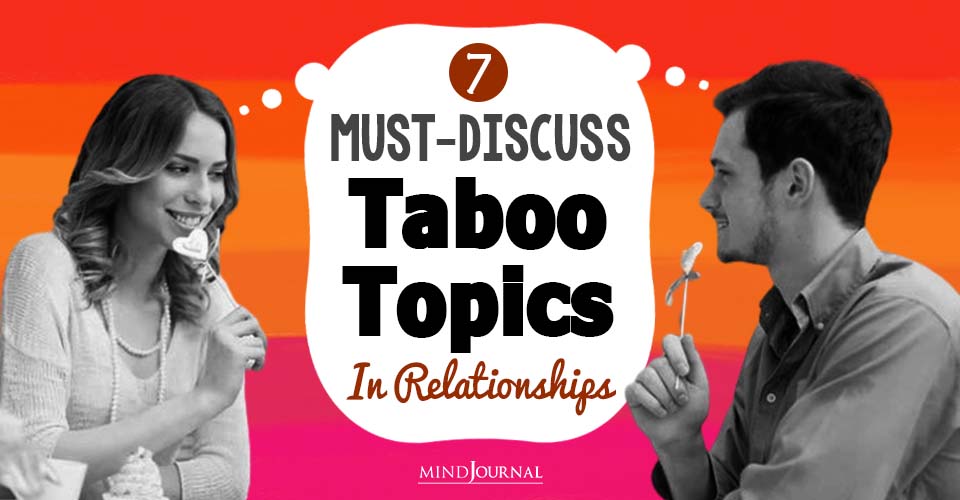Do you want to know the key to a successful marriage? Well you’ve got to be your own person and cultivate a balanced relationship.
Let’s take a look at how debunking the common view of marriage can help you and your partner by being your own person in a marriage.
Taking a stereoscopic view of committed relationships.
KEY POINTS A “needs-based, business transaction” view of marriage is grounded in psychological theories that promote self-interest. Marriage is not about the obligation that results from the quid-pro-quo business model of marriage; it’s about caring for and about each other. A stereoscopic view of marriage is about creating a relationship while also being separate individuals though collaborative negotiation. Negotiating collaboratively is about promoting the well-being of each spouse while enhancing the quality of the marital relationship.
Unlike the idea that in marriage, you become “one,” it is important to be aware that you are an individual as well as a spouse. As a spouse, you focus on maintaining the quality of the relationship; as an individual, you focus on maintaining yourself as a separate and autonomous person.
It’s like taking a stereoscopic view of marriage. While we perceive one unified image, our visual system is made up of two separate images. Each eye sees a different image; it is our mind that creates the unified vision we “see.”
I think that is a good analogy for how we should think about being married. We “create” a “relationship”—togetherness—while also being separate individuals. Marriage is about being together and being separate at the same time—simultaneously.
Let’s Get Rid Of The Business Model Of Marriage
There is a common view of marriage, widely discussed in self-help books and blogs, that it is about each of us fulfilling each other’s “needs.” This is the business model of marriage. In this view, marriage is a transaction—an exchange of needs. Marital satisfaction is determined by how well your needs are fulfilled compared to how cumbersome it is to fulfill your partner’s needs. The general idea is that you should get a fair return on what you contribute to your relationship.
What you are not told is that this view of marriage is based on the idea that people are primarily motivated by self-interest, more commonly known as selfishness. That we are motivated by self-interest has become scientific dogma in our current society.
We are told by evolutionary psychologists and biologists that self-interest is the natural human condition. And if we both act in our own self-interest, everything will turn out equally and fairly in the end. Self-interest has become the societal norm for understanding how we should conduct our lives in and out of our relationships.
I don’t buy it. The whole thing about one human being loving another human being involves something more than keeping track of how well my needs are being met compared to how bothersome it is to fulfill my spouse’s needs. Author Noah Berlatsky put it well when he said that marriage is not about the obligations that result from a quid-pro-quo, business-like transaction.[3] Rather it’s about caring for and about each other.
Related: Stop Being Annoyed By Your Partner By Managing Expectations in Relationships
Where Did This Business Model Of Marriage Come From?
The concept of “need” became popular in psychology during the middle of the 20th century as an expression of the more general idea that we are all motivated primarily (or only) by self-interest. Psychologists wanted to get away from more philosophical ideas like wants and desire to be more like the hard sciences. So, they adopted the theoretical idea of “biological need” (which morphed into “psychological need”) as a more scientific way of talking about wants, desires, and preferences.
Other psychologists, trying to help couples “satisfying each other’s needs,” adopted ideas from “social exchange theory” for how to negotiate their differing needs. In this theory, human interactions are like an economic marketplace where self-interest is the guiding force in interpersonal relationships.
Theorists who promote this “needs-based, business transactional” model of marriage tend to adopt the idea that husbands and wives must fulfill each other’s biologically-based gender needs.
We should not be surprised that the divorce rate in the United States is about 50 percent for first-time marriages, 60 percent for second marriages, and 73 percent for third marriages. And most divorces are initiated by women. The “needs-based, business transaction” is grounded in the idea of self-interest turns out not to be a good model for marriage.
Related: Needing Each Other Without Drama: The Sweet Spot of Interdependence
A Stereoscopic View Of Marriage

Here is a helpful schematic that shows the idea of taking a stereotypic view of being married, i.e., being together in a relationship and remaining an autonomous individual.
If you want a satisfying and stable marriage (represented by the arrow between wife and husband), both you and your spouse have to be able to see yourselves stereoscopically, i.e., simultaneously as an individual and as a couple committed to each other (represented by the vertical arrow).
If you see yourself primarily as an independent individual (the top half of the schematic), you will be too self-interested to negotiate differences and disagreements. On the other hand, if you see yourself primarily as in a relationship (the bottom half of the schematic), you will neglect your own wishes and wants, creating a one-sided relationship.
How Negotiating Collaboratively Helps You Keep A Stereoscopic View Of Your Marriage
The negotiation that takes place in marriage is not a business transaction where each partner is trying to maximize his/her own wishes and wants at the expense of the other. It’s about working collaboratively to promote the well-being of each spouse while valuing and enhancing the quality of the relationship.

Here’s How To Be Your Own Person In A Marriage
1. Approaching Your Partner
When you have something on your mind, give your partner a heads-up about what you want to talk about. It is important to give him/her time to think about what is important to him/her about the issues and events to be discussed. While both partners are invested in their own wants and preferences, neither partner tries to privilege his/her position. True collaborators are always equals who negotiate with each other in good faith.
2. Express What You Want
To have a want or preference is an expression of yourself; it is an expression of what you believe is important for you to live well, to have a good life. As such, it’s important that your wants and preferences be acknowledged. At the same time, they are not demands that must be catered to, pronto. Your individual wants do not take precedence over the relationship just because we call them “needs.”
3. Every Concern Of Yours Is A Concern Of Mine
It is important to openly state your wants and preferences about the issue at hand, including why this preference is important to you. Through this process, each of you can learn things about your partner and about the things that are important to him/her. It is through this process that you demonstrate that your care about your partner and are concerned about his/her wants and desires.
4. Making An Action Plan
The best outcome of this kind of discussion is an action plan that is responsive to the stated concerns of both partners. Collaborating about the solution to issues between you is not about capitulating, cooperating, compromising, or accommodating.
- Capitulating is surrendering your individuality. Most of us have a (possibly unconscious) fear of being overwhelmed by our partner at some time or other. True collaborators never require a partner to “give in” to his/her preferences.
- Cooperation sounds good but is about the result of negotiating. Collaboration is about the process of negotiating.
- Compromising may look like collaboration, but it is more frequently capitulation, building problems in the future.
- Accommodating is a distancing form of compromising. You are basically saying, “I think I can live with that,” but you are really separating yourself from the process and your partner.
Related: How To Tell If You’re In A Healthy Relationship (When You’ve Never Had One Before)
Collaboration is how you and your spouse keep a perspective on yourselves both as individuals and as a couple at the same time while you are negotiating individual and marital goals, resolving differences equitably, managing conflicts, creating and maintaining a satisfactory sex life, figuring out where you stand on fidelity, choosing to have/not have kids, managing household tasks, and how both of you can have careers.
Collaboration in marriage comes from the unique qualities and contributions of the collaborators. If either of you does not participate as fully engaged and equal partners, it might as well be one person making the decisions.
Flourishing As Individuals, Together!
A new view of marriage is a stereoscopic one—one that honors each of you as individuals while together you create a relationship that supports each of you. To have this kind of stereoscopic marriage means you must give up old, stale ideas from yesteryear about fulfilling each other’s gender-based needs through business-like transactions.
Choose instead to learn to negotiate your life plans with one another collaboratively. Collaborative negotiation is the process by which issues are identified, discussed, and resolved in such a way that each partner feels honored and valued while supporting the relationship for the long haul.
Related: 16 Signs Of A Healthy Relationship
References
1.Gadoua, S. “Five Needs Every Marriage Has”. Psychology Today Blog. October, 2009. (https://www.psychologytoday.com/us/blog/contemplating-divorce/200910/fi…)
2.Wallach, M. and L. Wallach. (1983) Psychology’s Sanction for Selfishness: The Error of Egoism in Theory and therapy. San Francisco: W.H. Freeman.
3.Berlatsky, N. “Spouses Probably Shouldn’t Try to Split Household Tasks Exactly Evenly.” The Atlantic. March 19, 2013.
4.Wallach and Wallach.
5.Cherry, K. “Social Exchange Theory in Relationships”. Verywellmind. February 21, 2020. (https://www.verywellmind.com/what-is-social-exchange-theory-2795882).
6.“Divorce Rates by State 2021. World Population Review. (https://worldpopulationreview.com/state-rankings/divorce-rate-by-state).
7.Why are Women More More Likely to Initiate Divorce Than Men? Buncher Law Firm. April 14, 2020. (https://buncherlaw.com/2020/04/14/why-women-are-more-likely-to-initiate…)
8.Aponte, C. E. (2019). A Marriage of Equals. Berkeley: She Writes Press
You may want to learn how to flourish in marriage but how do you do that?
It is essential that you maintain your own individuality in a relationship and respect your partner’s choice. You can still adore your spouse and continue to cultivate or strengthen your unique traits without losing your sense of self.
Written by: Catherine Aponte Psy.D. Originally appeared on: Psychology Today Republished with permission









Leave a Reply
You must be logged in to post a comment.